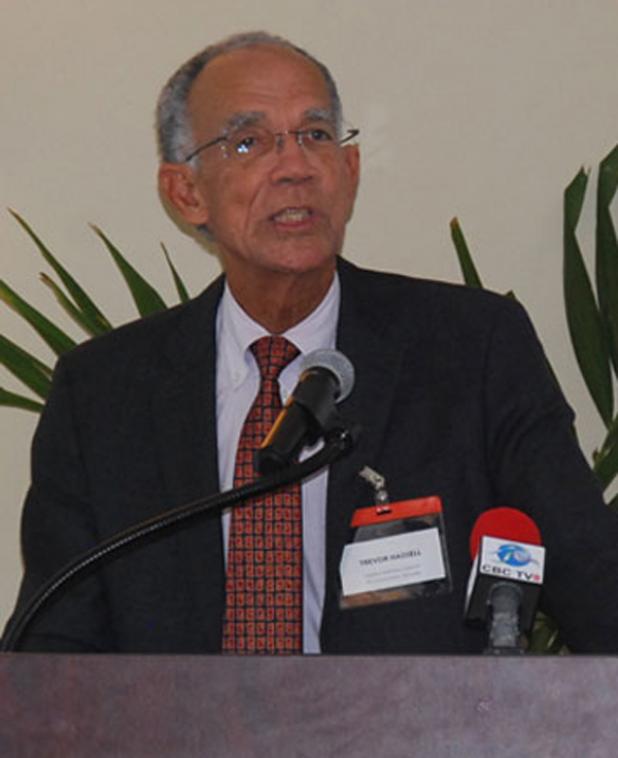
Sir Trevor Hassell, President of the Healthy Caribbean Coalition (HCC).
Time to change the way we produce and consume food
THE COVID-19 pandemic represents an opportunity for a paradigm shift
in the Caribbean, in the way we produce and consume healthy food.
This was the view shared recently by Sir Trevor Hassell, President of
the Healthy Caribbean Coalition (HCC).
“It presents an opportunity for a regional approach to achieving the
goal of maximum food security, with support for sub-regional and
national approaches for addressing the food self-security concerns,”
he pointed out.
Sir Trevor further stated that as the Caribbean begins to look beyond
the COVID-19 pandemic, there is much consideration being given to
legacies of the pandemic, which will contribute to the socio-economic
development of Caribbean people. Many of these legacies are expected
to be in finance, how we do business, use of technology, and
diversification of economies, leading to more resilient countries
better able to respond to the ever-increasing shocks of climate
change, natural disasters, and recurrent pandemics.
However, he noted that of equal importance and need is a COVID-19
health legacy, resulting in the greatest number of people receiving
effective, affordable care in healthy national environments,
facilitated by pro-health policies and legislation.
“Paramount among the health conditions to which attention should be
paid are the chronic non-communicable diseases (NCDs). The coronavirus
pandemic has highlighted the links between NCDs and infectious
diseases, with people living with NCDs and obesity being more
susceptible to severe complications and death from COVID-19,” Sir
Trevor indicated.
“The increased attention to NCDs has brought into sharp focus the
large numbers of people living with NCDs (4 out of 10 adults in many
Caribbean countries) with some 8 out of 10 deaths being due to this
group of diseases. Obesity and overweight are at critical levels in
the Caribbean, with almost every country reporting that at least 50%
of all adults are overweight or obese and some countries reporting
rates as high as 70%. One of the main contributors to NCDs is the
consumption of unhealthy diets, that is, diets that contain energy
dense, nutrient poor, processed and ultra-processed foods high in
fats, salt and sugars – types of diets that either singly or
collectively contribute to the diseases and conditions of heart
disease, hypertension, diabetes, obesity, [and] cancers, which cause
much sickness and death and are leading barriers to socio-economic
development in the region,” he added.
“A main contributor to consumption of unhealthy diets is the high
importation of unhealthy foods into the region, with many Caribbean
countries importing more than 90% of what they consume. The issue of
food nutrition and security is an important one inextricably linked to
the high prevalence of NCDs in the region, with circumstances of the
pandemic and its aftermath threatening to undermine the gains made in
recent years in prevention and control of diet-related NCDs as well as
the maintenance of good health among people living with NCDs,” he
continued.
“A legacy of the COVID-19 era therefore needs to be a fundamental
tackling of the health challenges posed by NCDs at regional and
national levels, with an important component of this being the
development and employment of healthy, resilient and sustainable
regional food systems through increased domestic production and
trade,” Sir Trevor asserted.
